
Do young men and women differ when it comes to religion?
Springtide’s recent research on young people finds that Gen Z men and women are quite similar in their feelings about religion and spirituality. For some aspects of religiosity (such as connection to a higher power and level of spirituality), young men and women do not differ at all. For other aspects (such as religious affiliation, service attendance, and self-described religiousness), there are differences between genders, but these differences are very small. Overall, Springtide data show that young men and women in the United States are largely aligned when it comes to religious identity, belief, and practice.
Religious affiliation & community by gender
More young men (68%) than young women (63%) affiliate with a religious tradition. A larger percentage of young men say they are currently part of an organized religious or spiritual community (34%), as compared to young women (30%).
Both of these differences are small, however, suggesting that young women are about as likely as young men to be religiously affiliated and to be part of a religious community.
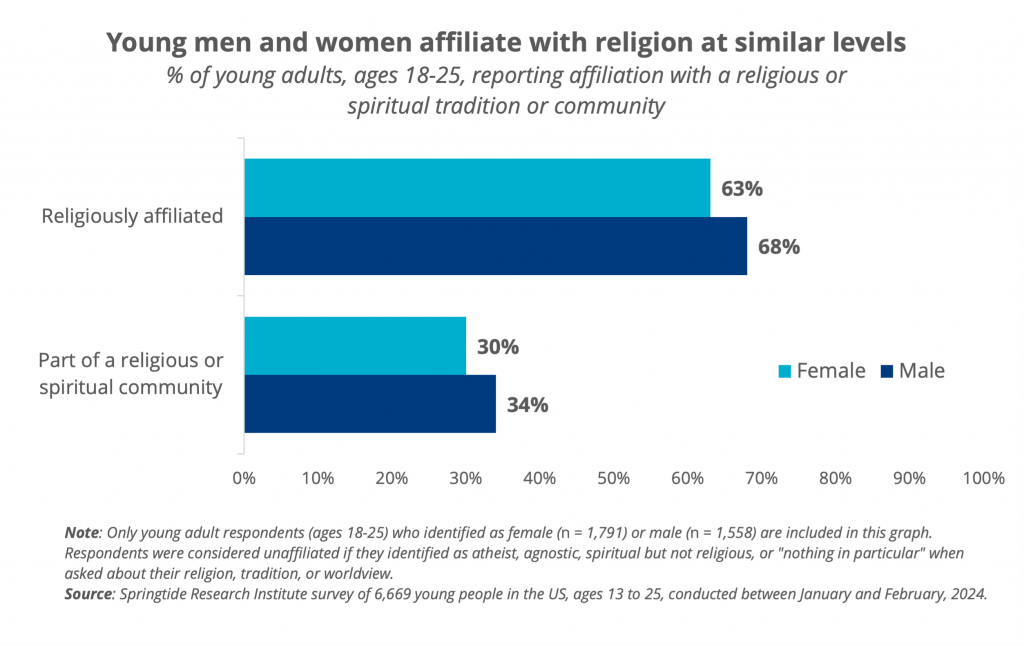
Religious service attendance by gender
A higher percentage of young men, as compared to young women, attend religious and spiritual services regularly: 30% of young men say they attend these services at least monthly, and 26% of young women say the same. Meanwhile, 23% of young men and 27% of young women say they never attend religious spiritual services. On average, though, these differences are minor—young men and women attend religious services at similar rates overall.
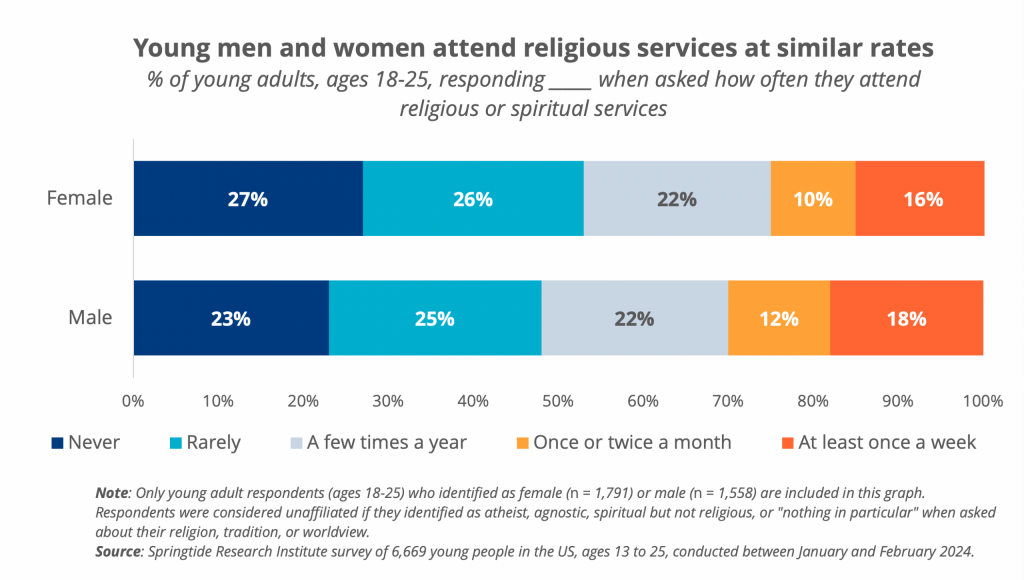
Religiousness and spirituality by gender
A larger percentage of young men say that they are “slightly,” “moderately,” or “very” religious (72%), as compared to young women (68%). However, this small difference suggests that young men and women report similar levels of religiousness.
Meanwhile, levels of spirituality are even more similar between genders: 80% of young women say that they are “slightly,” “moderately,” or “very” spiritual, and 77% of young men say the same.
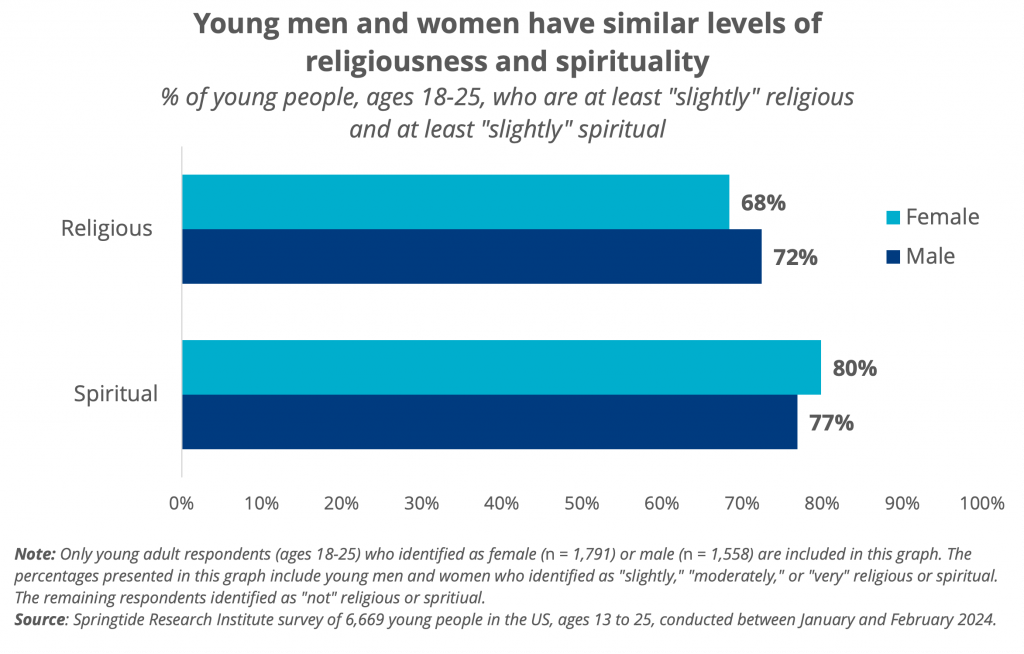
Belief in a higher power by gender
The same percentage of young men and women believe in a higher power—81% of young adults, regardless of gender, report some level of belief. A larger percentage of young men (11%) than young women (9%) say that they do not believe in a higher power. Meanwhile, a larger percentage of young women (10%) than young men (8%) say that they don’t know what they believe about a higher power. Generally, though, young men and women have similar beliefs when it comes to a higher power.
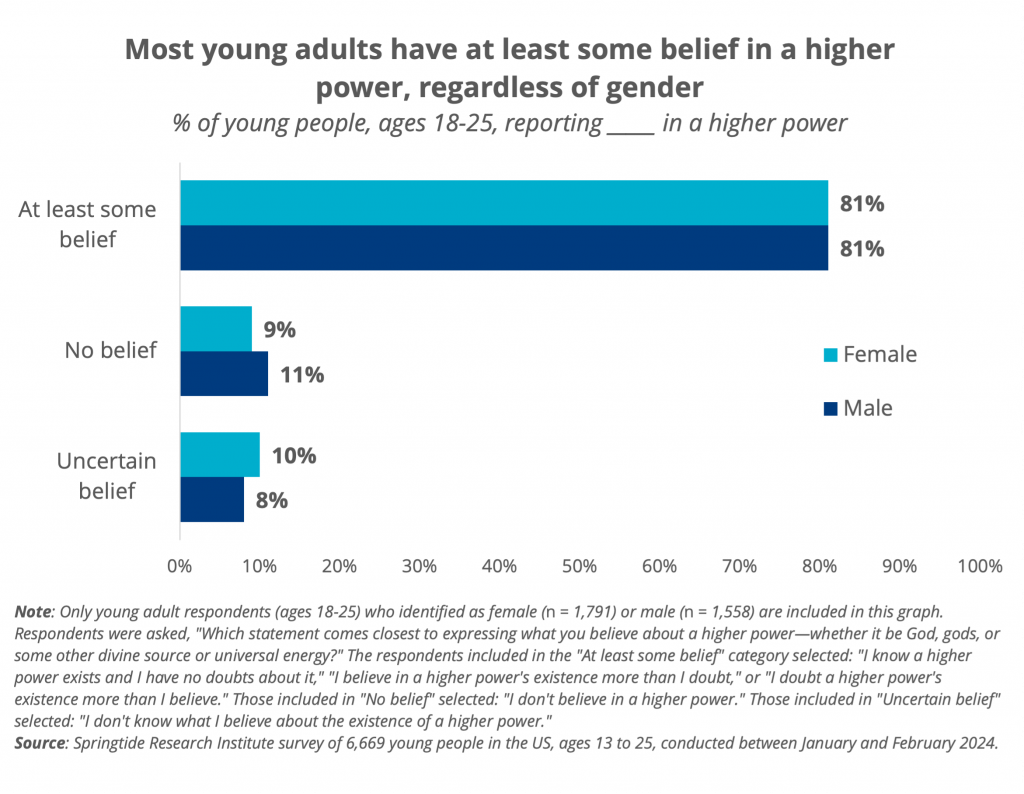
Very similar percentages of young men and women feel a connection to a higher power. Of young women, 79% report feeling “highly connected,” “moderately connected” or “slightly connected” to a higher power; 80% of young men said the same.
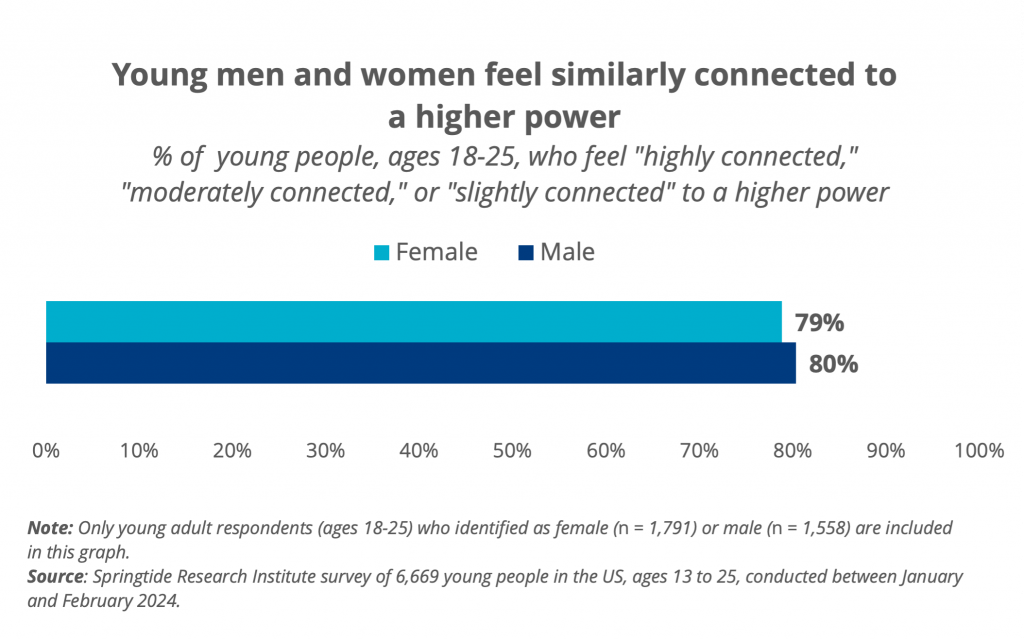
Note: The survey data featured in this Data Drop come from Springtide Research Institute’s 2024 Study of Young People and Civic Life. Springtide surveyed a sample of 6,669 young people in the US, ages 13–25. Young people aged 18-25 made up 53% of the survey sample (n=3,500). See survey responses in the topline survey results and review methodology here.



